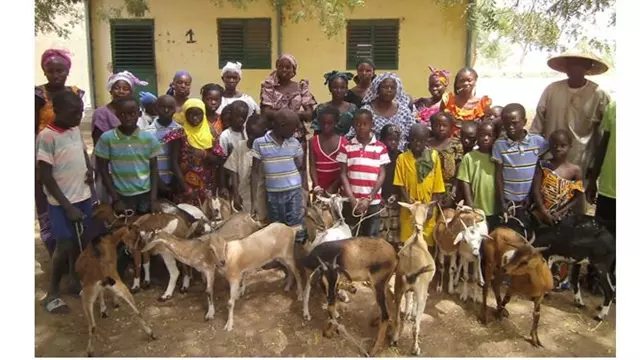
Social and Employment
Place
Commune of Ndiob, Senegal
Sponsor
Anne Berthelot
Grant(s)
15 000 € to the Selection Committee at 2009/12/01
Project leader
"For me, this is a generally sustainable training project that fits in ideally in a local context, particularly through the learner sponsorship system that will be installed. Once they are trained, the former apprentices will disseminate their training and the good practices learned to their entourage."
Anne Berthelot
Among the population of the rural community of Ndiob, in the Fatick region of Senegal and 150 km from Dakar, the rural exodus is often the only alternative. The association Jappoo Sénégal is fully aware of this because, since 2003, it has taken charge of a number of projects in this rural community and its 16 000 inhabitants. It is assisted therein by the permanent presence in the field of ADEPE (Association pour le développement et la promotion de la petite enfance). Together, and after lengthy discussions with the inhabitants, the teams drew various conclusions including this one: improved living conditions "fix" the local population to the communal lands. But this improvement strongly is contingent on increasing agricultural production, and this cannot be achieved without training in farming techniques. The seeds were thus planted for a center for initiative and utilization of local agricultural resources.
Adapting training programs that have proved their worth
The project is based on the successful experiment conducted in the last three years in another school farm, where the methods appeared to be ideal for the conditions prevailing in Ndiob. Over a period of eighteen months, the dozen apprentices per class will receive 250 hours of training, including 80% of practical work. General botany, traditional agriculture, truck farming, animal husbandry ... a wide variety of subjects will be addressed. When this training is complete, they will receive five months of guidance to facilitate their installation on their own farms.
The first class arrives in February 2010 and the center is ready to welcome them. But the arrangements necessary for effective practical training still have to be installed. The Veolia Foundation will therefore finance the drilling of wells and the creation of a system for irrigation and plant protection. This initiative should help preserve a rural employment pool in this community.

